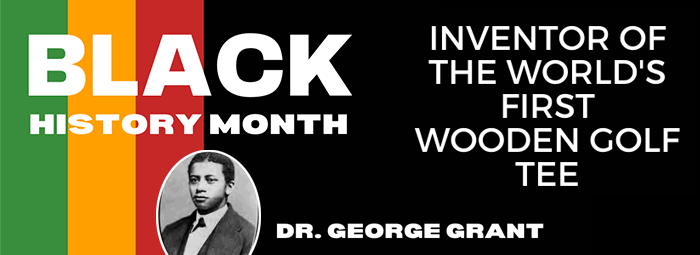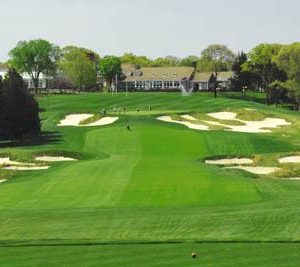
Dr. George Grant and Evolution of the Golf Tee
At OnCore, we’re committed to making golf better for everyone. We strive to continuously improve the products that we offer and how we engage with our customers. We understand the power of diversity and inclusion and appreciate everyone’s unique perspective, input, and feedback on how we can achieve those goals.
Dr. Grant was born to escaped slaves in 1846, eventually finding work as an assistant at a dentist’s office. This position allowed him to gain the experience necessary to attend and eventually become the second African American to graduate from Harvard Dental School. Later, he served as the first African-American professor at Harvard. Following his professorship, Dr. Grant opened a successful dental practice and became widely respected for his work repairing cleft palates. But, his real passion was golf…
On Dec. 12, 1899, Dr. Grant received a U.S. patent No. 638,920, the world’s first patent for a golf tee– a wooden spike with a flexible peg for the ball. Because Dr. Grant was an inventor and not a marketer, he never reaped the benefits of his innovation.
He gave some of the tees to friends and playing partners. When Grant died of liver disease in 1910, the invention passed with him.
Black History in Golf
The 20th and 21st century, the name Tiger Woods is as recognizable as the president of the United States and rightfully so. Today he remains one of the main men of golf worldwide and he’s Black. Yet nearly 150 years ago, in the late 1800’s after the American Civil War, Black golfers were playing the game very well.
In those days, the Professional Golf Association of America (PGA) fought hard and until 1961, successfully maintained its all-white status. So, Black golfers created their own organization of touring professionals even if it meant playing in less than comparable settings. Once Black golfers had access to courses, once the PGA opened its tournaments to all, the need for separate events became a thing of the past.
But, more work needs to be done and we plan to play a part in that.





